Video
What Union Budget 2026 Says? | Explained | Budget Takeaways | Nirmala Sitharaman | Finance #budget

Finance Minister Nirmala Sitharaman presented her ninth consecutive Union Budget on February 1, aiming to sustain economic growth amid global uncertainty. Budget 2026 focuses on boosting manufacturing, reviving legacy industries, and building globally competitive MSMEs while reinforcing the government’s reform-led approach. Scaling up manufacturing in strategic and frontier sectors.
#budget #unionbudget2026 #taxreform #itwebvideos #nirmalasitharaman #newbudget #budgetsession #uniongovernment #infrastructure #budgetnews #indiatoday #budget2026 #unionbudget #taxbracket #taxslab #newtaxregime #oldtaxregime #finance #financenews #gdpgrowth #fiscaldeficit #indianeconomy #economicgrowth #economicsurvey #womanentrepreneurs #viksitbharat #indiatoday
Subscribe to India Today for NEW VIDEOS EVERY DAY and make sure to enable Push Notifications so you’ll never miss a new video.
All you need to do is PRESS THE BELL ICON next to the Subscribe button!
India Today TV is India’s leading English News Channel. India Today YouTube channel offers latest news videos on Politics, Business, Cricket, Bollywood, Lifestyle, Auto, Technology, Travel, Entertainment and a lot more.
Stay tuned for latest updates and in-depth analysis of news from India and around the world!
For more updates, subscribe our channel: https://www.youtube.com/channel/UCYPvAwZP8pZhSMW8qs7cVCw?sub_confirmation=1
For LIVE updates, analysis, and expert opinions — only on India Today
NewsToday with Rajdeep sardesai: https://youtube.com/playlist?list=PLPPKwCCueQ_BDuN36y_c4eIFbbsTWudmi&si=Afk5JfoGFBsX8lvH
India First with Gaurav Sawant: https://youtube.com/playlist?list=PLPPKwCCueQ_BFk7nVk4khuMvyci5nuX4Z&si=iYuw0hIt9NTcrcOo
To The Point with Preeti Choudhry: https://youtube.com/playlist?list=PLPPKwCCueQ_AARG0z9XWZ3_lMCiLlMzfD&si=5AewBYYZZC-GkCny
NewsTrack with Marya Shakill: https://youtube.com/playlist?list=PLPPKwCCueQ_AzhqTbhMb8kfaauJmeH_IQ&si=Pzh_FY-lYsSoSEVJ
WhatsApp Channel: https://whatsapp.com/channel/0029Va2AnW3JENxxg7OuJv00
Download App: https://indiatoday.link/wHaj
Follow us: Official website: https://www.indiatoday.in/
Twitter: https://twitter.com/IndiaToday
Facebook: https://www.facebook.com/IndiaToday
source
Video
EARNING APP | BEST EARNING APP | ONLINE EARNING APP | MONEY EARNING APPS | NEW EARNING APP TODAY

EARNING APP | BEST EARNING APP | ONLINE EARNING APP | MONEY EARNING APPS | NEW EARNING APP TODAY
offer link :- check description
contact for sponsorship:- atiuttamkumar4@gmail.com
Your Queries:-
New earning app today
Earning app
NEW EARNING OFFER
new earning app
paytm cash today
earning app today
new loot offer today
paytm cash today
paytm cash earning apps
KICK CASH NEW TASK
paytm earning app
money earning apps
money earning apps
today earning app
NEW EARNING APP
Without investment earning app
paytm earning app 2025 today
cashback provider
Best earning Offers
new Offers today
loot offer today
d tech gupta ji
paytm cash
new paytm earning app today
Paisa kamane wala app
paytm cash earning apps
earning app
best earning app
paytm cash earning apps today
earning app today
paytm loot offer today
earn paytm cash
new earning app 2025
new refer and earn app today
new earning app today
tricky pintu
2025 new earning app today
2025 new earning app
today new earning app
Upi Earning App Today
today new earning app
earning app paytm cash
Upi Earning App
earning loot
earning app 2025
New Safola Loot Working
new earning application
loot offer today
paytm money earning apps
Upi Earning App Today 2025
new earning loot today
paytm earning app 2025 today
Instant Cashback loot
how to earn paytm cash
new campaign loot today
Best loot offer today
earning app 2025 today
Tricky Pintu
paytm loot
paytm cash earning app
money earning app
Cashback Provider
best earning app today
cashback offer today
Upi Earning App 2025
biggest earning app
Best earning app
earning app today
earning app 2025
paytm cash today
Earning app today
PAYTM NEW OFFER
new offer today
earning loot offer today
refer and earn app today
Techno Teen
2025 upi earning app
new earning app
new loot offer
self earning app
earning app today
new earning loot
loot Offers today
paytm earning app today
today earning loot
new upi earning app
2025 upi earning app today
online earning app
Online Paisa kaise Kamaye
Paytm cash earning app
upi earning app 2025 today
online jobs at home
BEST OFFER TODAY
2025 Best Earning Apps
self earning app today
online earning
money earning app today
Tech Nobita
new loot today
paytm offer today
new upi earning app today
real money earning app with proof
campaign loot today
REFER AND EARN
earn money
new upi earning app today 2025
BIGGEST EARNING APP
earning apps today
money loot offer Today
Super knowledge
real earning app with proof
earning apps 2025
new cashback offer today
Top earning app today
Top earning app
online earning without investment
PAYTM NEW OFFER TODAY
paytm new offer today
how to earn money online
how to earn money online for students
money earning apps today
earn money online
Vip Tech Gamer
earning app
earning app without investment 2025
new money earning app 2025
Disclaimer: “Refer and Earn” programs and their terms can change over time. The information presented in this video is accurate to the best of my knowledge at the time of recording. Please verify the current terms and conditions of the app before participating. I am not responsible for any losses or issues that may arise from your participation.
Copyright Disclaimer:-
Under Section 107 of the Copyright Act 1976, allowance is made for ‘Fair Use’ for purposes such as criticism, comment, news reporting, teaching, scholarship, and research, Fair use is a permitted by copyright statute that might otherwise be infringing, Non-Profit, educational or personal use tips the balance in favor of fair use.
Disclaimer:
This video is for informational purposes only and should not be construed as financial advice. Please consult with a financial advisor before making any investment decisions.
Disclaimer:
The documents i used to create the tutorial video, such as email ID, phone number, and bank details, are all fictitious and have no resemblance to the actual documents.
Thanks for watching… #techydipak #EarningApp #NewEarningApp #moneyearningapp #earnig_video
source
Video
Trump Just Gave Markets Massive Fuel! (Bitcoin & Crypto To Ignite)
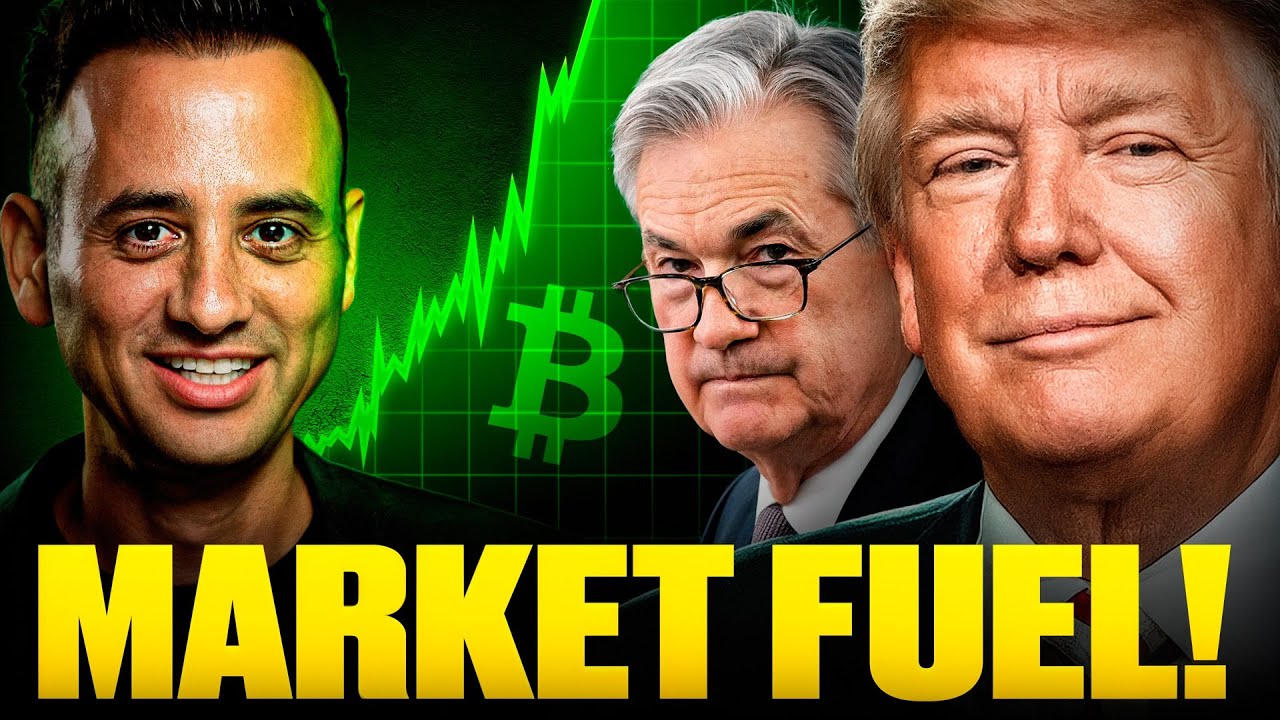
The Dollar is breaking and the “Sell America” trade is officially on. While the mainstream media calls this chaos, we see the hidden plan crafted by President Donald Trump! Today, Ran is breaking down why Trump is letting the Dollar slide, how Japan’s yen rate-check is helping us, and why you cannot afford to be on the sidelines while liquidity floods the market!
___________________________________________
𝗙𝗘𝗔𝗧𝗨𝗥𝗘𝗗 𝗢𝗡 𝗧𝗛𝗜𝗦 𝗦𝗛𝗢𝗪!
⬇⬇⬇⬇⬇⬇
💰 𝗕𝗟𝗢𝗙𝗜𝗡 – 𝗚𝗲𝘁 𝗮 $𝟯𝟬𝟬 𝗛𝗬𝗣𝗘𝗥 𝗣𝗼𝘀𝗶𝘁𝗶𝗼𝗻!! 𝟯 𝗗𝗮𝘆𝘀 𝗢𝗡𝗟𝗬 𝗗𝗲𝗮𝗹!!
1️⃣ Receive a $15 voucher when you sign up!
2️⃣ Use your voucher on 20X leverage to open a $300 HYPER position!
🚨 First 500 users ONLY! Offer EXCLUSIVE to Ran! Use the link below:
👉 𝗡𝗼 𝗞𝗬𝗖! 𝗦𝗶𝗴𝗻 𝗨𝗽: https://bit.ly/Blofin-Hype-Ran
📺 𝗛𝗼𝘄 𝗧𝗼 𝗖𝗹𝗮𝗶𝗺 𝗬𝗼𝘂𝗿 𝗕𝗼𝗻𝘂𝘀: https://youtu.be/SU3v4Hep4qk
__________
🚀 𝗙𝗥𝗢𝗡𝗧 𝗥𝗨𝗡𝗡𝗘𝗥𝗦 – 𝗪𝗲’𝗿𝗲 𝗠𝗮𝗸𝗶𝗻𝗴 𝗕𝗜𝗚 𝗠𝗢𝗩𝗘𝗦!! 𝗡𝗼𝘄 𝗶𝘀 𝗧𝗵𝗲 𝗕𝗘𝗦𝗧 𝗧𝗜𝗠𝗘 𝘁𝗼 𝗚𝗲𝘁 𝗜𝗻!
👉 Join the Exclusive Discord Group: https://bit.ly/FRONTRUNNERSACCESS
✅ Unlock EXCLUSIVE Alpha from Ran’s Private Network!
✅ Access FREE Crypto Indicators, Charts, Wallet Trackers, Portfolios and Insights!
✅ Discover Pre-Pump calls. Front Runners are always FIRST in!
🤝 Risk-Free! Love it in 30 days or your money back – no questions asked.
___________________________________________
𝗛𝗢𝗦𝗧 𝗖𝗛𝗔𝗡𝗡𝗘𝗟𝗦
⬇⬇⬇⬇⬇⬇
👉 𝗥𝗮𝗻 𝗼𝗻 𝗫: https://x.com/cryptomanran
👉 𝗥𝗮𝗻 𝗼𝗻 𝗜𝗻𝘀𝘁𝗮𝗴𝗿𝗮𝗺: https://bit.ly/ran-insta
___________________________________________
👁️🗨️ 𝗖𝗿𝘆𝗽𝘁𝗼 𝗕𝗮𝗻𝘁𝗲𝗿 𝗮𝗯𝗶𝗱𝗲 𝗯𝘆 𝘁𝗵𝗲 𝗳𝗼𝗹𝗹𝗼𝘄𝗶𝗻𝗴 𝗰𝗼𝗱𝗲 𝗼𝗳 𝗰𝗼𝗻𝗱𝘂𝗰𝘁:
https://www.cryptobanter.com/our-ethics/
We take our code of ethics very seriously and have engaged @zachxbt ( / zachxbt ) to monitor our progress. If you feel we’re not living up to it and have hard evidence please mail ZachXBT directly at reportcb@protonmail.com
⚠️ 𝗕𝗘𝗪𝗔𝗥𝗘 𝗢𝗙 𝗦𝗖𝗔𝗠𝗠𝗘𝗥𝗦 𝗜𝗡 𝗢𝗨𝗥 𝗖𝗢𝗠𝗠𝗘𝗡𝗧𝗦 𝗔𝗡𝗗 𝗖𝗢𝗠𝗠𝗨𝗡𝗜𝗧𝗬 𝗖𝗛𝗔𝗡𝗡𝗘𝗟𝗦
___________________________________________
📝 𝗗𝗶𝘀𝗰𝗹𝗮𝗶𝗺𝗲𝗿:
Crypto Banter is a social podcast for entertainment purposes only!
All opinions expressed by the hosts, guests and callers should not be construed as financial advice! Views expressed by guests and hosts do not reflect the views of the station. Listeners are encouraged to do their own research.
#CryptoNews #Bitcoin #DXY #TradingAltcoins #Ran
⏱ 𝗧𝗶𝗺𝗲𝘀𝘁𝗮𝗺𝗽𝘀:
00:00 Trump’s Secret Market Fuel Unleashed
03:40 Why Trump Is Intentionally Devaluing The Dollar
06:29 DXY vs S&P 500: A New Paradigm
08:52 The Trump Playbook For Global Competitiveness
11:50 The ISM Trigger For Bitcoin’s Next Run
13:00 Is Gold Replacing The US Dollar?
14:00 Why Bitcoin Was Built For This Moment
18:36 Risk Asset Repricing & Market Meltup Strategy
19:59 Introducing The Mag 7 Of Crypto
21:10 Hyperliquid (HYPE): The Decentralized Perp Leader
22:42 Top Altcoin Picks
24:55 Bitcoin’s Best vs Worst Case Scenarios
🎬 𝗪𝗮𝘁𝗰𝗵 𝗠𝗼𝗿𝗲 𝗖𝗿𝘆𝗽𝘁𝗼 𝗩𝗶𝗱𝗲𝗼𝘀: https://www.youtube.com/live/xZk1K2_vDjw?list=PLmOv2_vzOoGd_je37xsSrQD4WVpum0UDa&index=2
source
Video
Wall Street Bonanza Won’t Save NYC’s Finances, Mamdani Warns
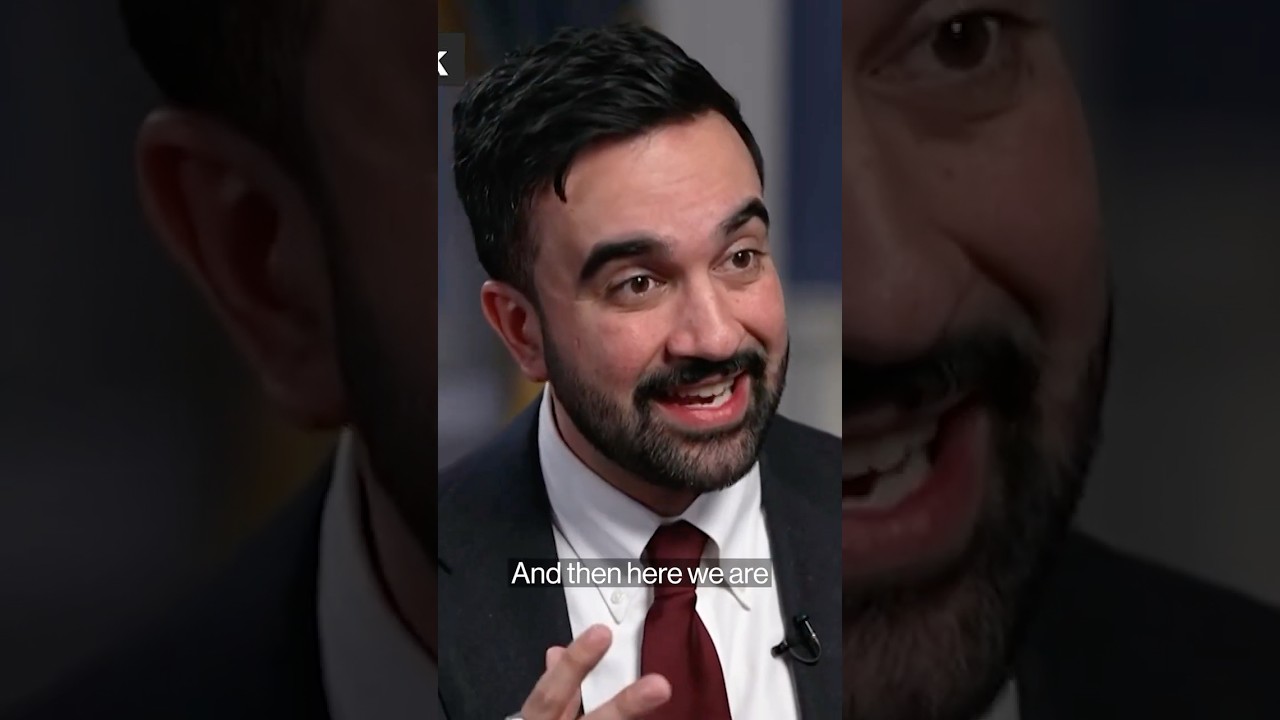
Mayor Zohran Mamdani says a financial crisis is worse than the Great Recession nearly two decades ago, despite Wall Street’s booming year.
The financial industry is a key contributor to New York’s tax base, accounting for about 7% of the city’s tax revenue during the 2024 fiscal year.
Mamdani launched a campaign to lobby lawmakers to hike taxes on the richest residents and corporations, and to send billions more in aid to the city, to help fill a projected $12.6 billion budget gap.
———-
Like this video? Subscribe https://www.youtube.com/@Bloomberg-News
Bloomberg News is the first word in business news. Visit bloomberg.com for the latest on global business, markets and more.
Get unlimited access to Bloomberg.com for $1.99/month for the first 3 months: https://www.bloomberg.com/subscriptions?in_source=YoutubeOriginals
Bloomberg on YouTube:
https://www.youtube.com/@business
https://www.youtube.com/@markets
https://www.youtube.com/@BloombergTechnology
https://www.youtube.com/@BloombergPodcasts
Connect with us on social:
https://www.instagram.com/bloombergbusiness
https://www.linkedin.com/company/bloomberg-news
@bloombergbusiness
https://www.facebook.com/bloombergbusiness
source
Video
No Money [ DJ BEN RMX ]
![No Money [ DJ BEN RMX ]](https://wordupnews.com/wp-content/uploads/2026/02/1770218101_maxresdefault.jpg)
#kabalavu #ben #swc #tiktok #mashup #vibes
–
Subscribe For More Ahaha!
Credits : @djbenrmx
source
Video
Personal Finance, Insurance Fraud, Bad Financial Choices & Budget With Monika Halan | Ajeet Bharti

In this podcast, Monika Halan, a well-known personal finance writer, speaker and author who helps families get their money decisions right, speaks with Ajeet Bharti on various aspects of personal finance, insurance scams, frauds, budget and many more issues.
Books: https://www.monikahalan.com/books/
She is the founder of Dhan Chakra Financial Education and the best-selling author of Let’s Talk Money that is now available in Hindi, Marathi and Punjabi as well. She is an Adjunct Professor at Banasthali Vidyapeeth, Rajasthan. She is the Chairperson of Sebi’s Advisory Committee for Investor Protection and Education Fund.
She is a regular speaker on financial literacy, regulation, inclusion and consumer issues in retail finance. She has a Master’s in Economics from the Delhi School of Economics and a second Master’s in Journalism Studies from College of Cardiff, University of Wales, UK. She has worked across various media organisations in India, including Mint, The Economic Times and The Indian Express, and was Editor Outlook Money. She has run four successful TV series around personal finance in NDTV, Zee and Bloomberg India.
Monika has public policy experience as Member of the Task Force set up by the Government of India to put in place the Financial Redressal Agency, Member on the Sebi Mutual Fund Advisory Committee from 2009 to 2021, Member on the Ministry of Finance Committee on Incentives (Bose Committee), and Advisor to Swarup Committee in 2009.
She has four published academic papers in the field of household finance.
—
Join this channel to get access to perks:
https://www.youtube.com/channel/UC0PV5M3VlgXlP0wUqTJIIeQ/join
—
If you liked the video, please support us:
PATREON: patreon.com/AByoutube
G-Pay/PhonePe/PayTm: 8368978144
UPI: ajeet.bh@upi | 8368978144@ptyes
PayPal: paypal.me/ajeetbh
—
Chapters
00:00 Promo
02:38 Intro
04:45 Biggest Gap In Finance
08:25 What Is Financial Security
12:33 When To Start Investing
20:30 Monika Halan Podcast
21:23 How To Save When You Earn Very Less
31:50 Truth Of Financial Products
38:18 Is Insurance A Scam?
43:45 How Companies Deny Insurance
46:35 Govt At Fault, They Don’t Regulate
55:35 What Does Insurance Co Do With Our Money
01:00:57 Sweet Talk By Agents
01:03:15 Should Life Run On Credit
01:05:23 EMI To Maintain Status
01:08:07 What Is Employment
01:11:52 How Imp Is Financial Freedom For Women
01:19:45 A Good Husband
01:24:00 Women Entrepreneurship
01:27:00 Freebies & Women
01:31:40 Advice For Single Working Person
01:33:08 Newly Married, Both Working
01:35:55 Someone With Young Kids
01:37:58 Men & Women in 50s
01:39:53 Budget Expectations
01:45:34 Uniqueness of Indian Economy
01:52:29 Outro
—
This video is about: ajeet bharti, ajeet bharti latest video, ajeet bharti channel, ajeet bharti youtube channel, ajeet bharti satire, ajeet bharti roast, ajeet bhartii vyangya, ajit bharti, ajit bharti video, ajit bharti latest, ajeet bhai video latest
source
Video
THEY WANT TO FUD YOU OUT OF XRP – BUYING 1000 XRP IS GETTING MORE EXPENSIVE – YOUR NOT TOO LATE YET
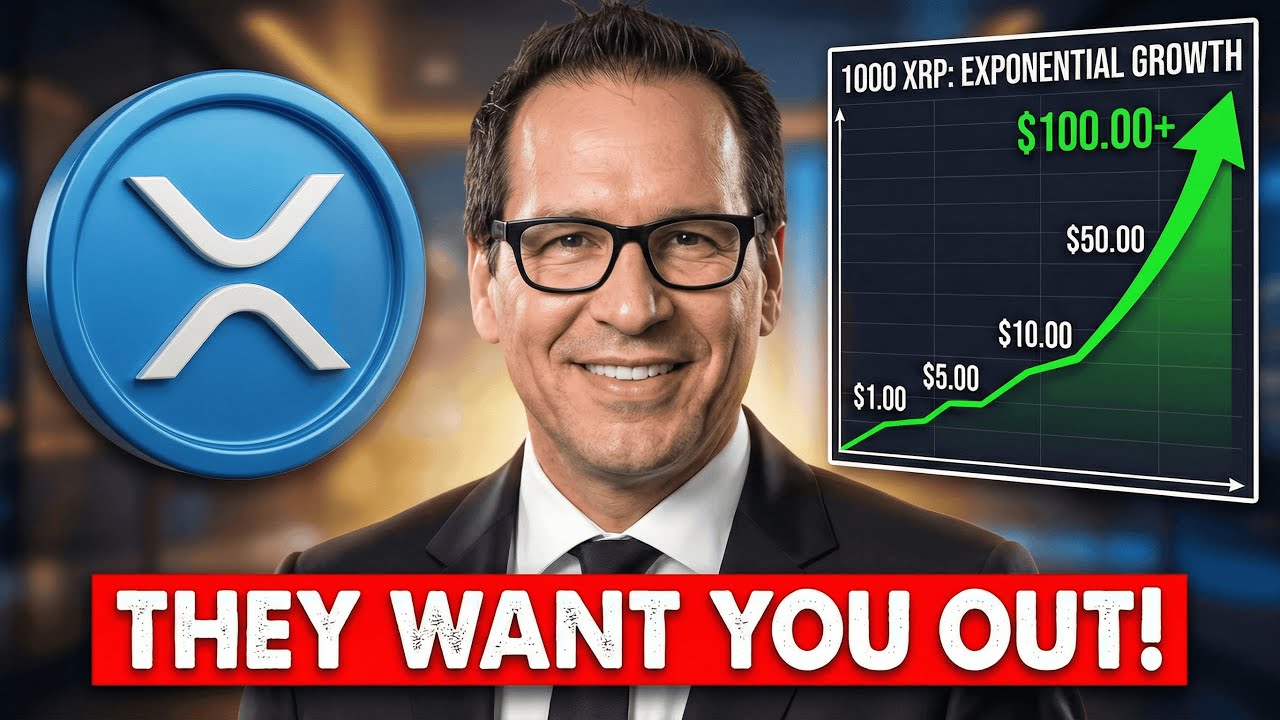
THEY WANT TO FUD YOU OUT OF XRP – BUYING 1000 XRP IS GETTING MORE EXPENSIVE – YOUR NOT TOO LATE YET
NEW OFFICIAL CSC CRYPTO SHOP IS HERE:
https://officialcryptoshop.com/
⭐ FOLLOW ME ON X – https://x.com/TheCSCrypto ⭐
This video is about XRP. This video is about XRP and Ripple. Huge XRP update you need to see.
XRP Update, Ripple Update, Ripple XRP News: Latest News
⭐DCENT WALLET EXCLUSIVE DISCOUNTS ⭐
Wallet – https://store.dcentwallet.com/products/biometric-wallet-affiliates?bg_ref=Ka4GjOgJZa&utm_source=youtube&utm_medium=affiliate&utm_campaign=yt_CommonSenseCryptoYT_v01
2 Pack Wallet – https://store.dcentwallet.com/products/biometric-wallet-2x-package-affiliates?bg_ref=Ka4GjOgJZa&utm_source=youtube&utm_medium=affiliate&utm_campaign=yt_CommonSenseCryptoYT_v01
All in One Card – https://store.dcentwallet.com/products/all-in-one-card-wallet-backup-card-package-affiliates?bg_ref=Ka4GjOgJZa&utm_source=youtube&utm_medium=affiliate&utm_campaign=yt_CommonSenseCryptoYT_v01
⭐$1,000 SIGN UP BONUS ON MEXC: https://bit.ly/3P8NBq7⭐
Hey, I am Rich from Common Sense Crypto, bring you crypto news & information regarding the cryptocurrency market. The content on my channel will focus on news, common sense, insights and overall guides regarding XRP, Bitcoin, Ethereum, HBAR, & various altcoins.
DISCLAIMER: I am not a financial adviser, & all information given in my videos or on my social media platforms is for entertainment purposes only and is not financial advice.
Description Tags (Ignore)
#xrp #ripple #crypto
source
Video
You’re Not Ready for the Next Phase of Bitcoin…
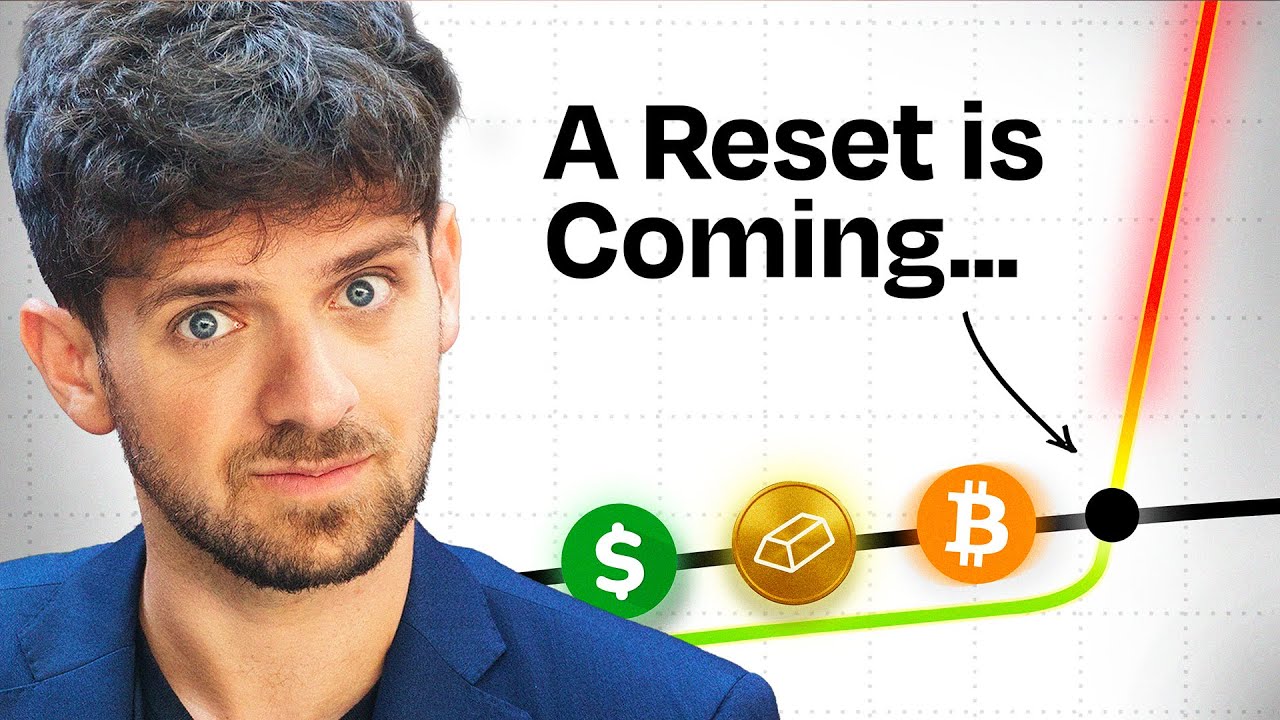
The next phase of Bitcoin is coming. The “oh wait… why is my savings account doing absolutely nothing” phase.
Check out the Blockstream Jade Plus and get 10% off with code EXIT:
https://store.blockstream.com/?code=exit
Check out how to secure your Bitcoin LONG TERM with CASA. Get 10% off Casa Premium:
https://url.casa.io/exit
Want to support the show? We’re crowdfunding via BTC:
Bitcoin Address: bc1qg5ls7ugdky4a3ujdpkvnh9mlgng353th2eqc85
Lightning/LNURL: getbasedtv@coinos.io
Produced by: @getbasedtv
Director & Writer: Julian Figueroa
Editor: Benjamin Côté
Assistant Editor: Beto Guerrero
source
Video
UN Nears ‘Imminent Financial Collapse’; Spies Stalk US
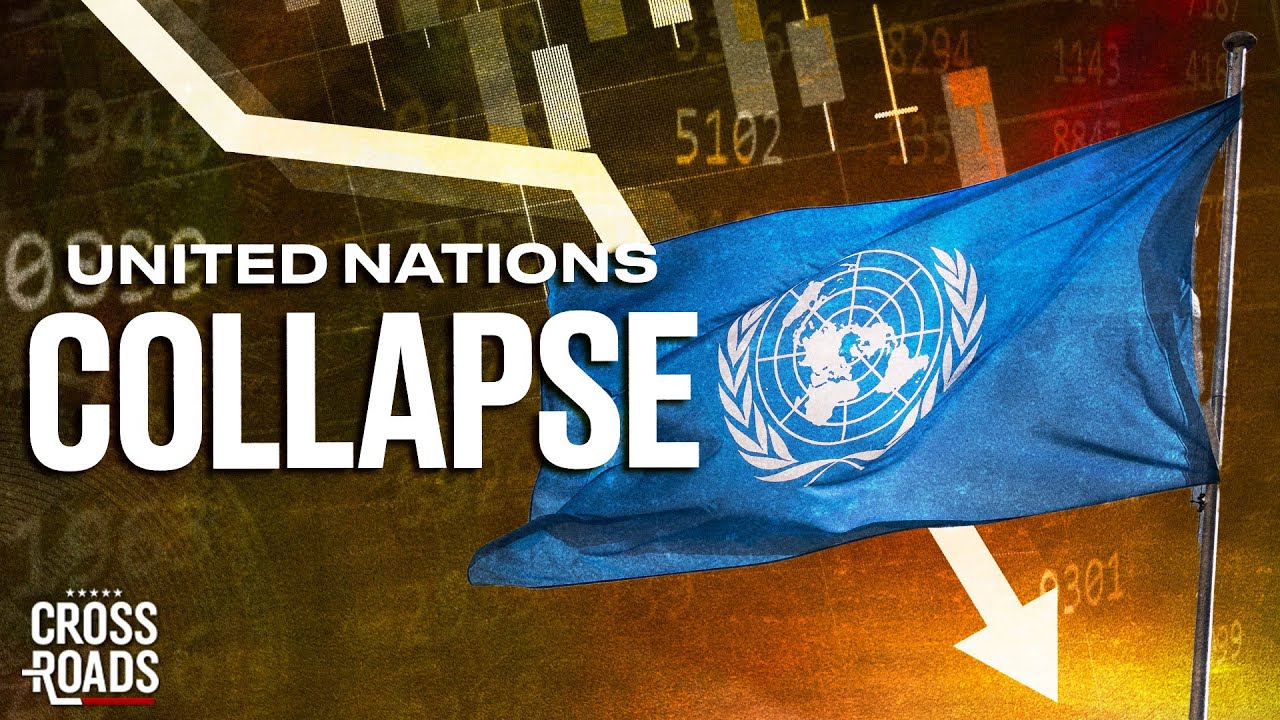
Subscribe to our channel: www.youtube.com/@CrossroadsWithJoshuaPhilipp?sub_confirmation=1
🧈 Get Up To 15,000 of Free Silver with American Hartford Gold. Call 877-260-2764,
text “JOSHUA” to 6-5-5-3-2, or visit: https://ept.ms/3rshean
President Donald Trump has withdrawn key U.S. funding from the United Nations, and the international organization is now facing the risk of “imminent financial collapse,” according to U.N. Secretary-General António Guterres. Trump may also be signaling this could be part of a broader shift in global power, with the rejection of globalism and the return of American dominance.
Meanwhile, spies from Russia, China, and Iran are getting more aggressive within the United States. And they’re targeting people living here in America.
We’ll discuss this topic and others, in this episode of Crossroads.
– – – – – – – – –
Views expressed in this video are opinions of the host and guests, and do not necessarily reflect the views of The Epoch Times.
🙏 Support Crossroads with JOSHUA PHILIPP:
https://donorbox.org/crossroads
© All Rights Reserved.
source
Video
What you prefer 1000 Guyana or 2$ #shots #travel #nyc #money #guyana #usa #giveaway #like
Video
Expert Says XRP Holders Are About to Get VERY VERY Rich

#XRP #XRPNews #XRPToday
What we cover today:
The 8-Year Low: Why XRP exchange balances have cratered to 1.5 billion tokens and where they are actually going.
The ETF Vacuum: Analyzing the $1.37 billion institutional inflow from Canary, Franklin Templeton, and Bitwise.
Jake Claver’s Thesis: We explore the ‘ruthless suppression’ narrative and the programmed utility-driven growth.
The $33 Trillion Signal: How tokenized real-world assets (RWA) and RLUSD are creating a supply shock that cannot be ignored.
The Final Fuse: The Clarity Act of 2026 and the end of regulatory ambiguity.
Interactive Question: Do you believe we are witnessing a repeat of the Hunt Brothers silver squeeze, but on a global, digital scale? Let’s analyze the data in the comments.
I am The Calm Analyst. We don’t wait for the future, we plan for it.”
Welcome to The Calm Analyst — your clear, rational space for understanding financial markets, cryptocurrency, and the global economy without noise or hype.
At The Calm Analyst, we focus on breaking down complex market movements and financial concepts into calm, structured, and data-driven insights that help you see the bigger picture and think independently.
On this channel, you’ll find content covering:
✔️ Cryptocurrency markets, blockchain, and digital assets
✔️ XRP, Bitcoin, and major crypto trends & analysis
✔️ Global economy, inflation, and monetary policy
✔️ Market cycles, risk management, and investor psychology
✔️ Long-term investing perspectives and macroeconomic trends
What to expect:
📊 Clear technical & fundamental analysis
📚 Fact-based discussions backed by data and logic
🧠 Calm explanations designed to reduce emotional decision-making
🌍 Connections between global events and financial markets
Our mission is to help you analyze markets with clarity, patience, and discipline — empowering you to make informed decisions in a fast-moving financial world.
👉 Subscribe and turn on notifications 🔔 to stay updated with consistent, thoughtful market analysis.
⚠️ Disclaimer:
This channel is for educational and informational purposes only. Nothing shared here constitutes financial, investment, or legal advice. Markets involve risk, and losses are possible. Always conduct your own research and consult a licensed financial advisor before making investment decisions.
Keywords
XRP Supply Shock 2026, Jake Claver XRP analysis, XRP exchange liquidity 8-year low, Spot XRP ETF inflows January 2026, Franklin Templeton XRP ETF, Canary Capital XRP, Digital Asset Market Clarity Act 2026, XRP Ledger Tokenization $33 Trillion, RLUSD Binance listing impact, XRP deflationary burn rate 2026, Institutional accumulation XRP OTC, Ripple ODL volume 2026, XRP price discovery institutional, Silver Squeeze vs XRP Supply Shock, Glassnode XRP exchange balance data.
Hashtags
#XRP #Ripple #SupplyShock #JakeClaver #TheCalmAnalyst #CryptoNews2026 #ETFs #Tokenization #RWA #Finance #RLUSD #ClarityAct
#XRP #XRPNews #XRPToday #XRPPrice #XRPPrediction #Ripple #RippleXRP #XRPAnalysis #XRPLive #XRPArmy #Crypto #CryptoNews #CryptoNewsToday #Cryptocurrency #Bitcoin #Altcoins #XRPCoin #XRPLawsuit #XRPUpdate #RippleNews
source
-

 Crypto World5 days ago
Crypto World5 days agoSmart energy pays enters the US market, targeting scalable financial infrastructure
-
Crypto World6 days ago
Software stocks enter bear market on AI disruption fear with ServiceNow plunging 10%
-

 Politics5 days ago
Politics5 days agoWhy is the NHS registering babies as ‘theybies’?
-

 Crypto World5 days ago
Crypto World5 days agoAdam Back says Liquid BTC is collateralized after dashboard problem
-

 Video2 days ago
Video2 days agoWhen Money Enters #motivation #mindset #selfimprovement
-

 Tech7 hours ago
Tech7 hours agoWikipedia volunteers spent years cataloging AI tells. Now there’s a plugin to avoid them.
-

 NewsBeat5 days ago
NewsBeat5 days agoDonald Trump Criticises Keir Starmer Over China Discussions
-

 Politics2 days ago
Politics2 days agoSky News Presenter Criticises Lord Mandelson As Greedy And Duplicitous
-

 Crypto World4 days ago
Crypto World4 days agoU.S. government enters partial shutdown, here’s how it impacts bitcoin and ether
-

 Fashion5 days ago
Fashion5 days agoWeekend Open Thread – Corporette.com
-

 Sports4 days ago
Sports4 days agoSinner battles Australian Open heat to enter last 16, injured Osaka pulls out
-

 Crypto World4 days ago
Crypto World4 days agoBitcoin Drops Below $80K, But New Buyers are Entering the Market
-

 Crypto World2 days ago
Crypto World2 days agoMarket Analysis: GBP/USD Retreats From Highs As EUR/GBP Enters Holding Pattern
-

 Crypto World5 days ago
Crypto World5 days agoKuCoin CEO on MiCA, Europe entering new era of compliance
-
Business5 days ago
Entergy declares quarterly dividend of $0.64 per share
-

 Sports2 days ago
Sports2 days agoShannon Birchard enters Canadian curling history with sixth Scotties title
-

 NewsBeat1 day ago
NewsBeat1 day agoUS-brokered Russia-Ukraine talks are resuming this week
-

 NewsBeat2 days ago
NewsBeat2 days agoGAME to close all standalone stores in the UK after it enters administration
-

 Crypto World16 hours ago
Crypto World16 hours agoRussia’s Largest Bitcoin Miner BitRiver Enters Bankruptcy Proceedings: Report
-

 Crypto World6 days ago
Crypto World6 days agoWhy AI Agents Will Replace DeFi Dashboards








